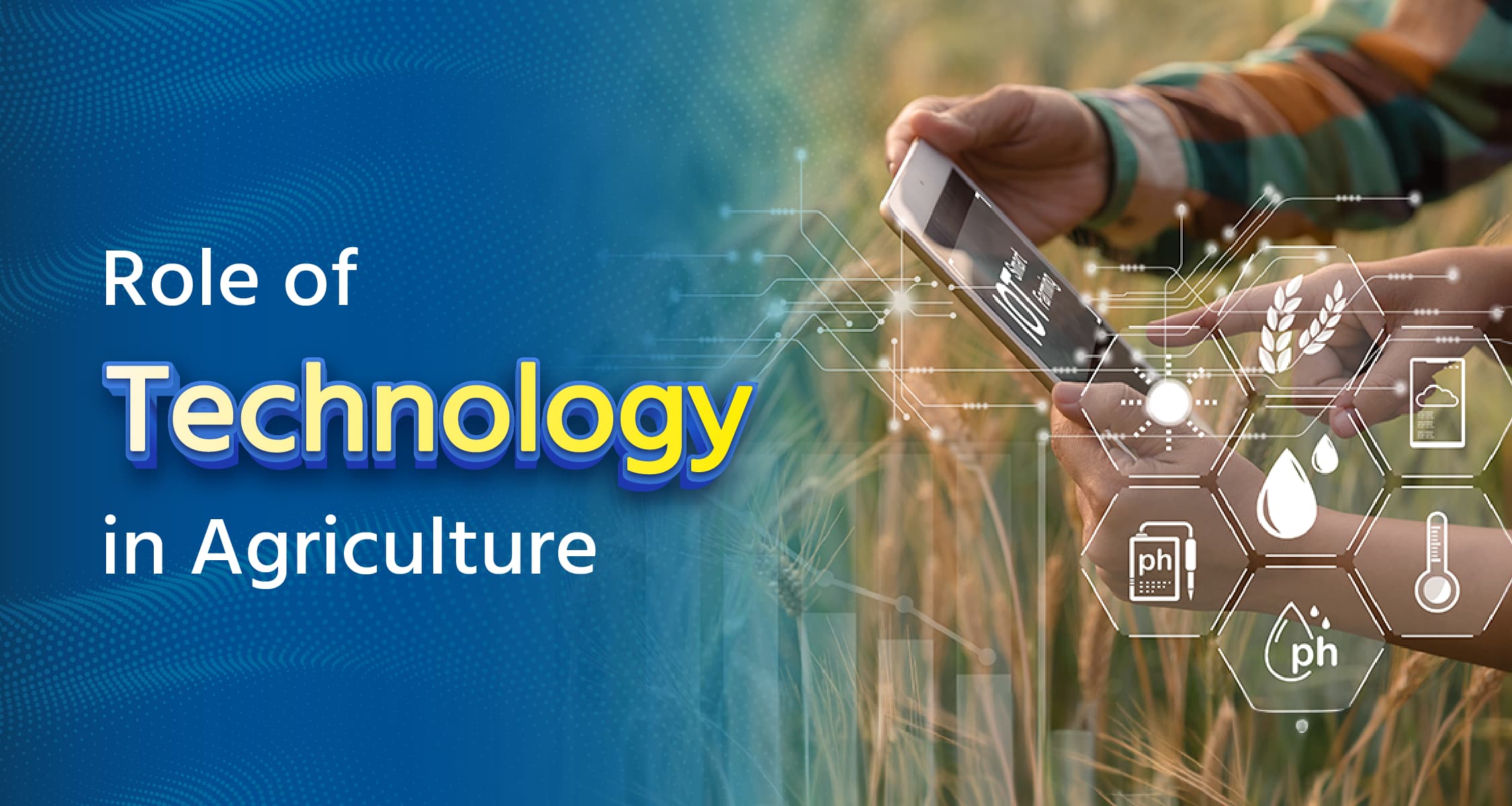Role of Technology in Agriculture

The agricultural landscape of India faces numerous challenges, including climate change, declining land productivity, water resource shortages, and the limitations of traditional methods. To address these challenges, the role of technology has become extremely important. Technology has revolutionized various sectors, and agriculture is no exception. Today, technological developments have transformed agricultural practices and made farmers' lives somewhat easier. The use of modern technologies not only increases agricultural production but also improves farmers' income and quality of living. However, there are some challenges in adopting these technologies, including high initial costs, lack of technical knowledge, and infrastructure deficits. Addressing these issues is essential in order to promote the use of technological tools in agriculture. Through this post, we will gain detailed information about the significance of technology in agriculture, the role of modern techniques, its challenges, and its benefits.
Importance of Technology in Agriculture
- Increased Production: Technology plays a crucial role in enhancing agricultural production. New techniques and scientific research have made it possible to develop more productive and disease-resistant seeds for crop production, allowing farmers to achieve higher yields.
- Effective Resource Management: Efficient use of resources such as water, land, and energy is essential for agricultural progress. With the help of technology, farmers receive information on water management, irrigation techniques, and soil quality. For example, effective water use is possible through drip irrigation and sprinkler systems, leading to the conservation of water resources.
- Marketing and Distribution: Technology has also simplified the marketing and distribution of agricultural products. Through e-commerce platforms and mobile apps, farmers can sell their products directly to the market, ensuring fair prices and reducing the role of intermediaries.
Challenges of Adopting Technology in Agriculture
- High Initial Costs: The use of modern technologies involves high initial costs, which can be a significant challenge for small and marginal farmers. The purchase and maintenance of drones, sensors, and other equipment are expensive, making it difficult for farmers to adopt these technologies.
- Lack of Technical Knowledge: Many farmers lack the necessary technical knowledge and training, preventing them from utilizing modern technologies effectively. Extensive training programs are needed to help farmers use new technologies correctly.
- Infrastructure Deficiencies: Many rural areas lack essential infrastructure, such as internet connectivity, electricity, and roads. This poses a major challenge, as these facilities are necessary for the effective use of technology.
- Lack of Awareness: Many farmers are accustomed to traditional farming methods and may be hesitant to adopt new technologies. There is a need to raise awareness about the benefits of new technologies and change their mindset.
Benefits of Technology in Agricultural Landscape
- Increased Production and Income: The use of technology in agriculture allows farmers to enhance their production, leading to an increase in their income.
- Increased Efficiency: Technology helps save time and labor. The use of modern machines and equipment enables various agricultural tasks to be completed more efficiently and in less time, reducing the need for manual labor and allowing farmers to focus on other important tasks.
- Environmental Protection: Technology also benefits the environment. Biotechnology reduces the use of pesticides and chemicals, which decreases soil and water pollution. Additionally, techniques like drip irrigation and solar power help in the conservation of natural resources.
- Market Access and Price Enhancement: Technology has provided farmers with better market access for their products. Through e-commerce platforms and mobile applications, farmers can connect directly with customers and large retailers, ensuring fair prices for their products. Furthermore, online markets allow farmers to sell their products in various locations, increasing their income.
- Weather and Crop Monitoring: Farmers often face losses due to weather uncertainties. Modern technologies provide accurate weather information, enabling farmers to make better decisions. Satellites, drones, and sensors assist in monitoring and analyzing crops, allowing for quick resolution of any issues that arise.
- Agricultural Finance and Insurance: Technology has also simplified agricultural finance and insurance for farmers. Through mobile banking and digital payment systems, farmers can easily obtain loans and conduct financial transactions. Additionally, digital platforms allow farmers to insure their crops, providing protection against natural disasters and other risks.
Have you ever used any kind of modern technological tools to improve agriculture? If yes, please share your experience in the comments. If you have any questions related to this, feel free to ask them in the comments as well. For more information on modern technologies in agriculture, follow the 'Krishi Tech' channel now. Also, don’t forget to like and share this post with more farmers.
Frequently Asked Questions (FAQs)
Q: What do you understand by agricultural technology?
A: Agricultural technology refers to the use of modern tools, equipment, and techniques to improve agricultural productivity, efficiency, and sustainability. This includes the use of advanced machinery, precision farming techniques, biotechnology, and digital tools to optimize crop yields, reduce waste, and enhance food quality.
Q: What are the benefits of technology in agriculture?
A: The benefits of technology in agriculture include increased productivity, improved efficiency, reduced labor costs, enhanced crop yields, and better food quality. It also helps farmers optimize resource use and minimize environmental impact. Additionally, technology enables farmers to access real-time data and make informed decisions, leading to better outcomes.
Q: What is the significance of technology in our lives?
A: Technology has become an integral part of our lives, transforming the way we live, work, and communicate. It has made our lives easier, more convenient, and more efficient. Technology has enabled us to access information, connect with people worldwide, break down barriers, and create new opportunities for growth and development.
जारी रखने के लिए कृपया लॉगिन करें

फसल चिकित्सक से मुफ़्त सलाह पाएँ
